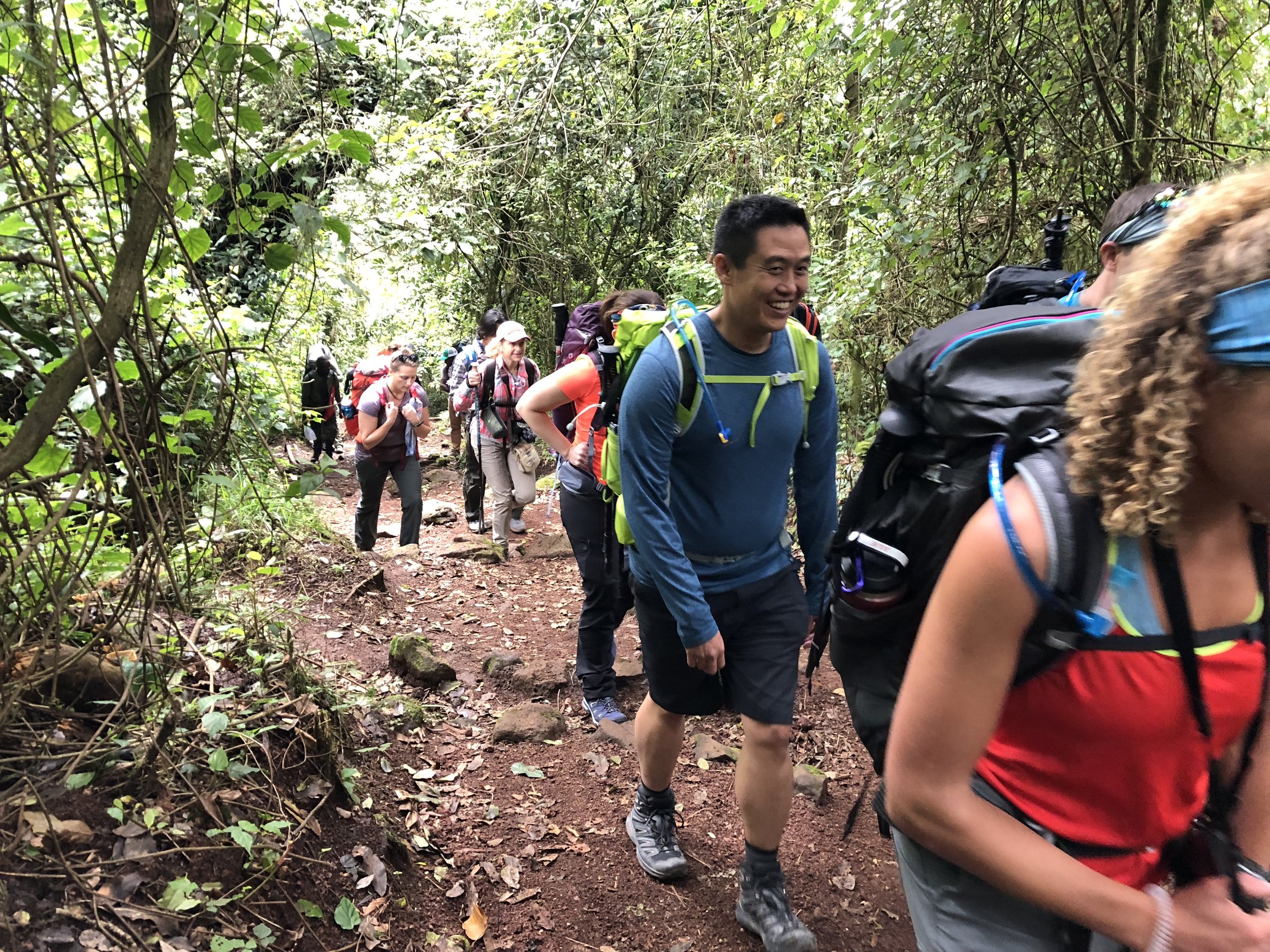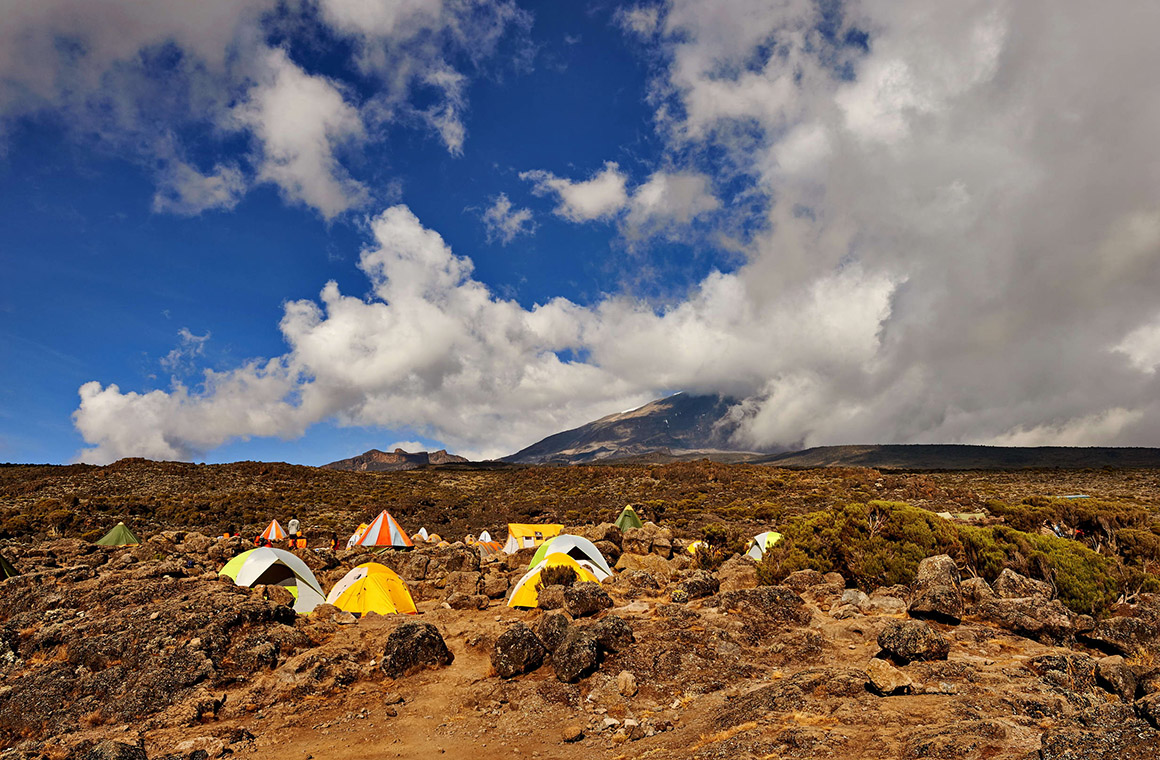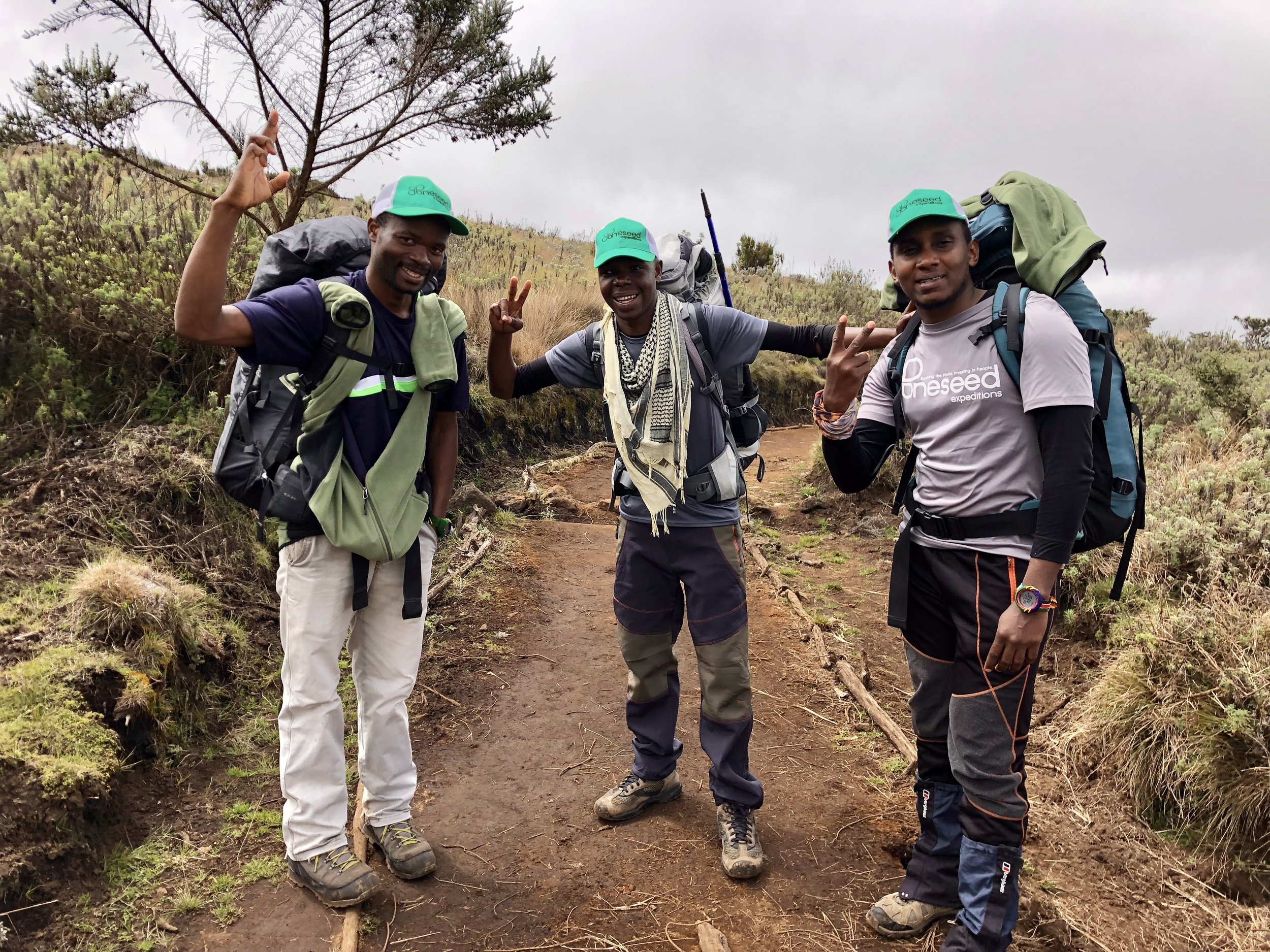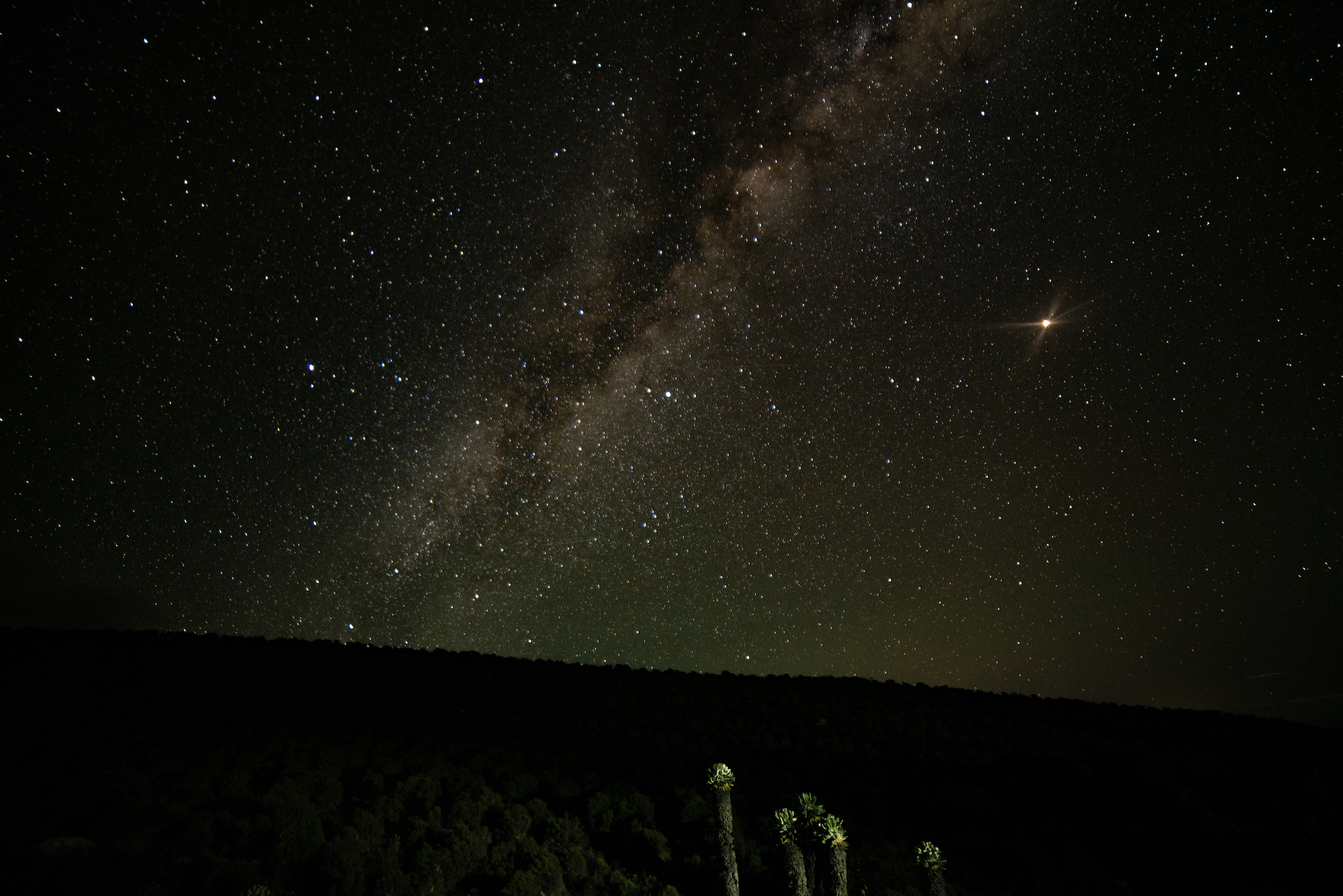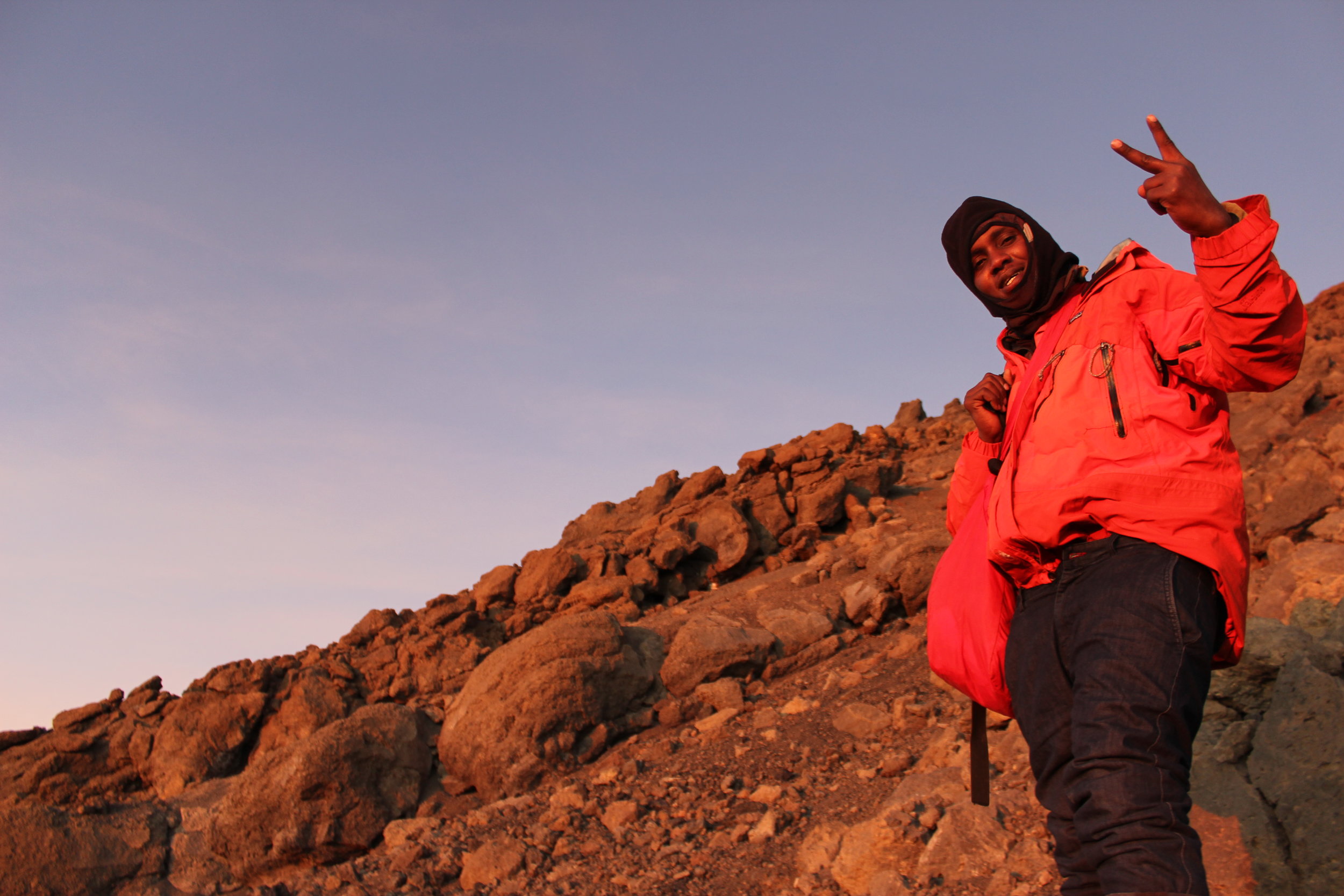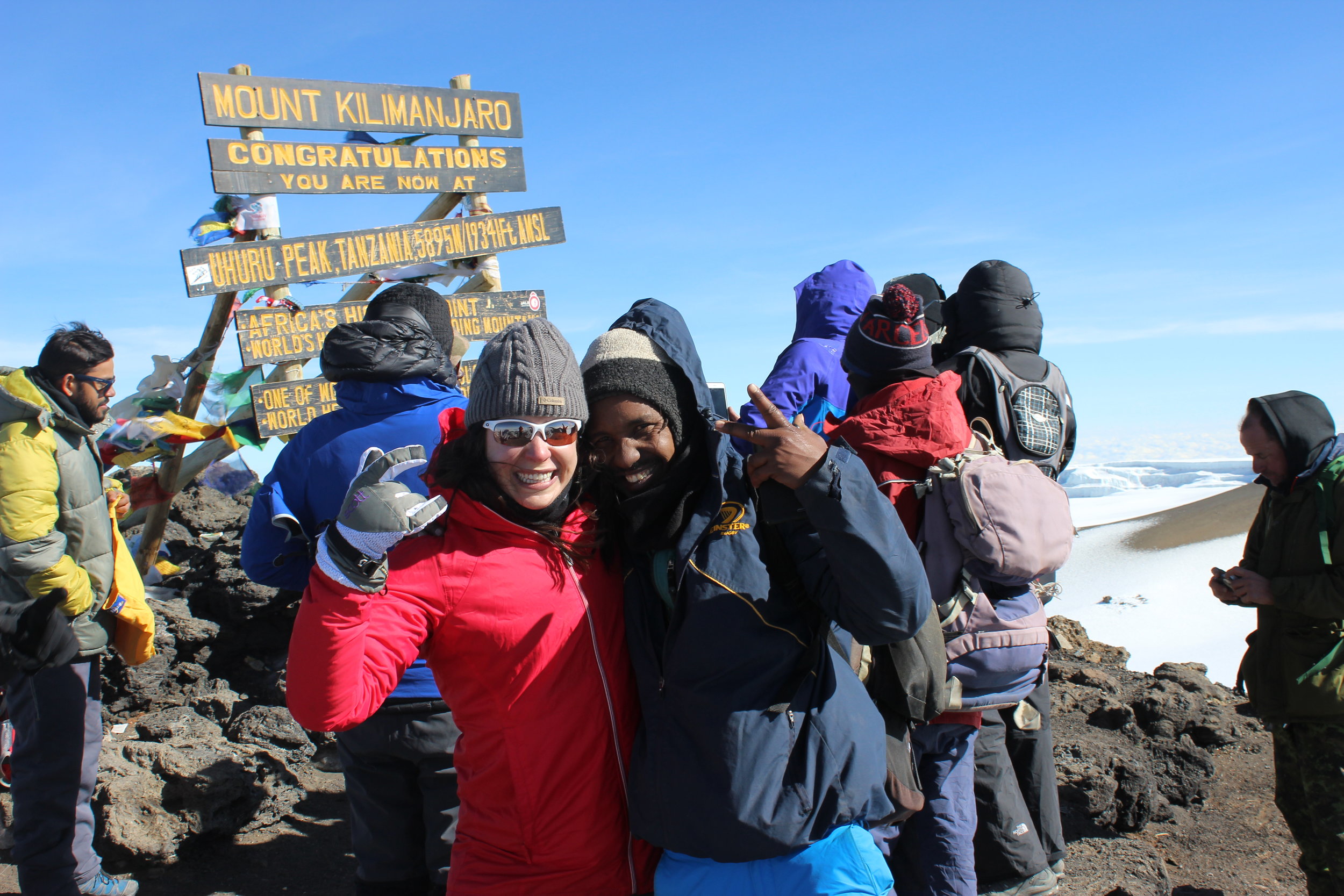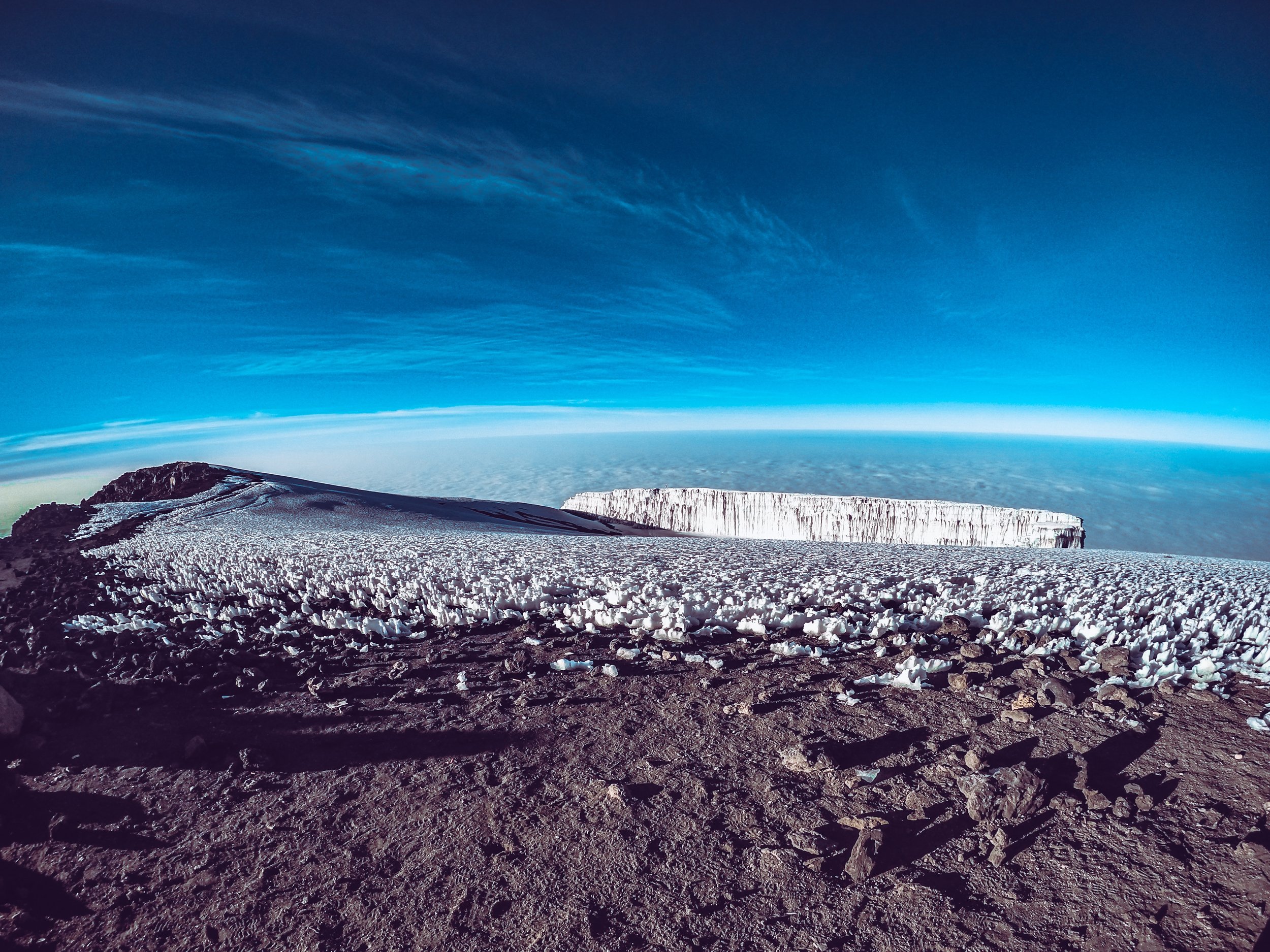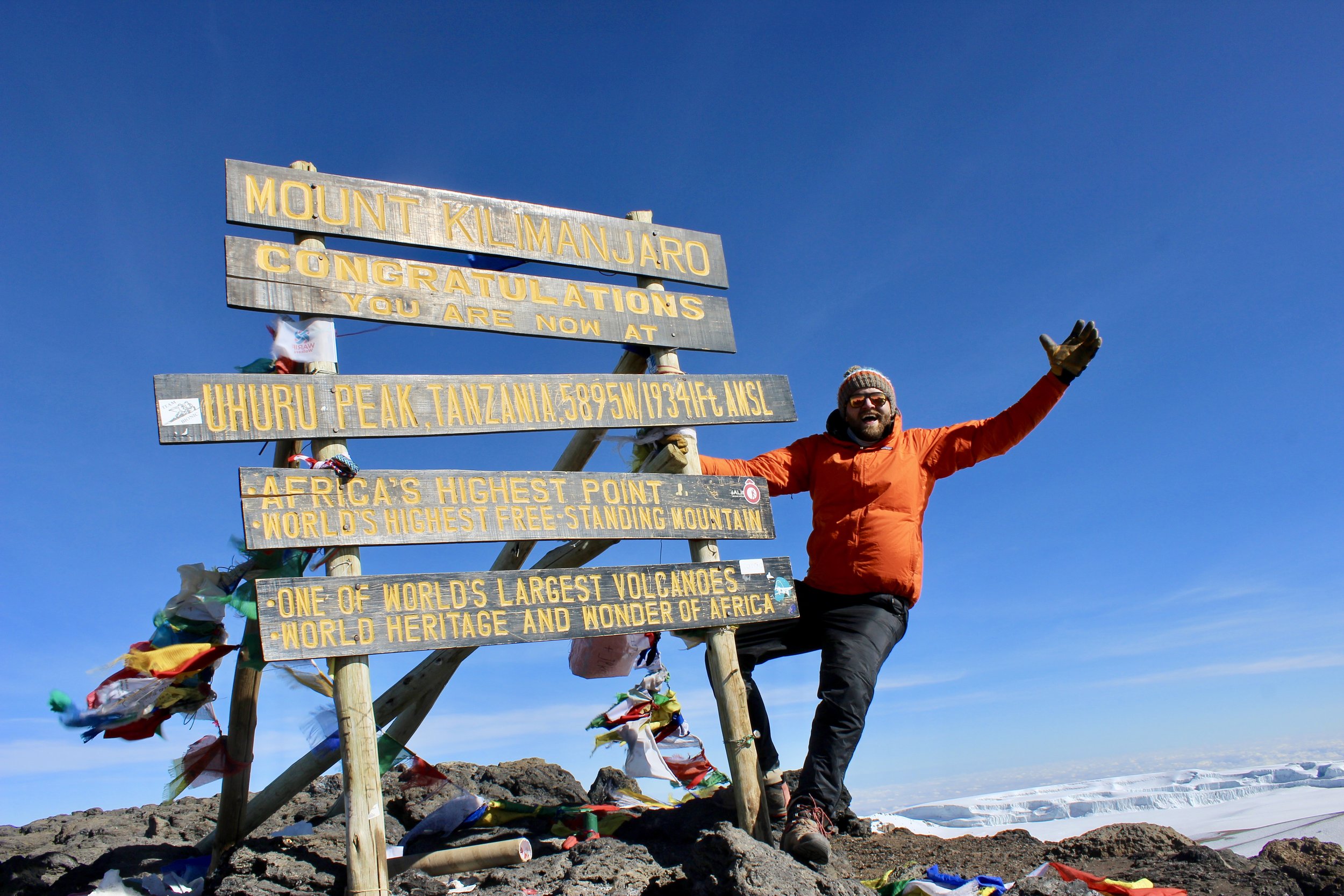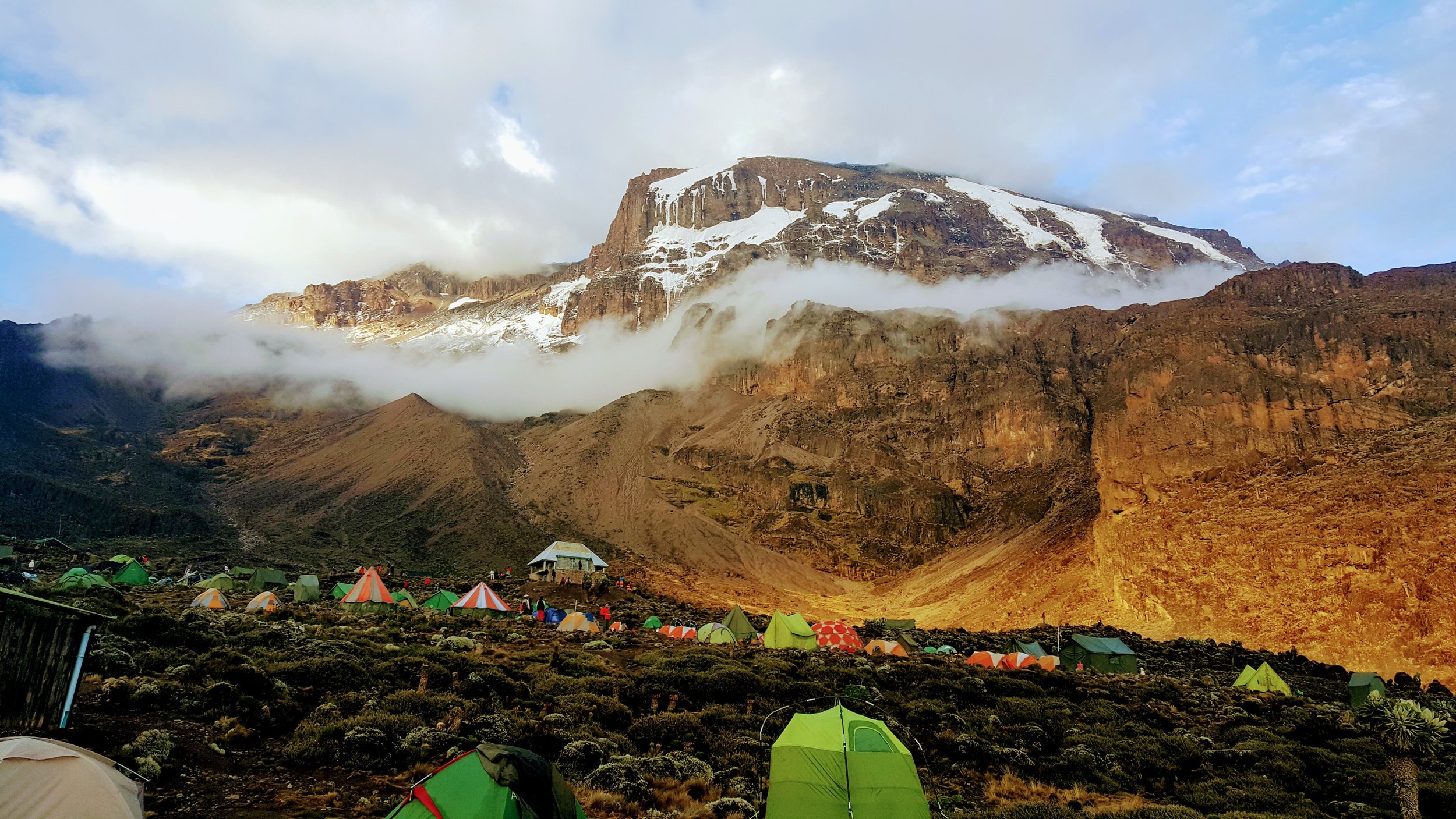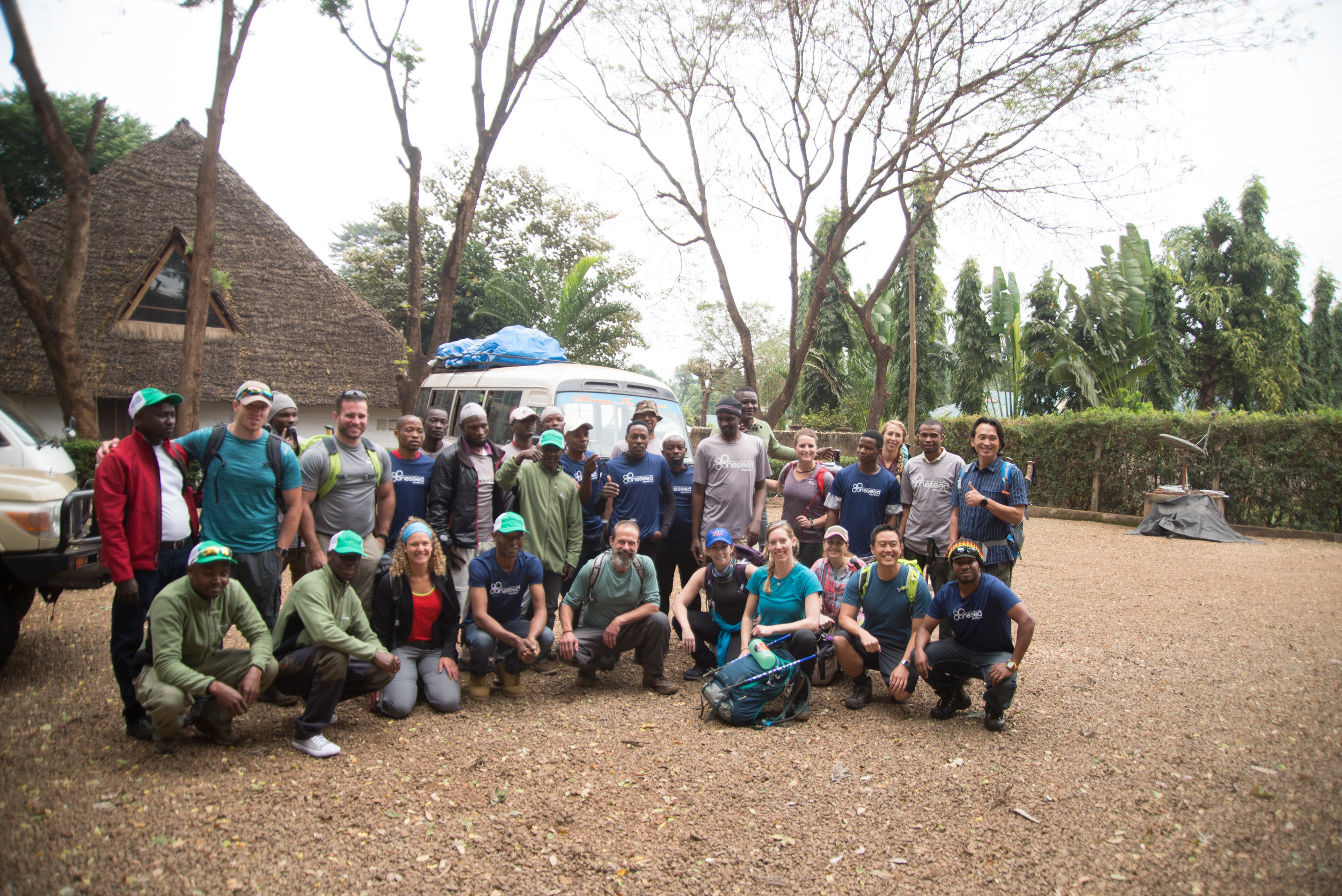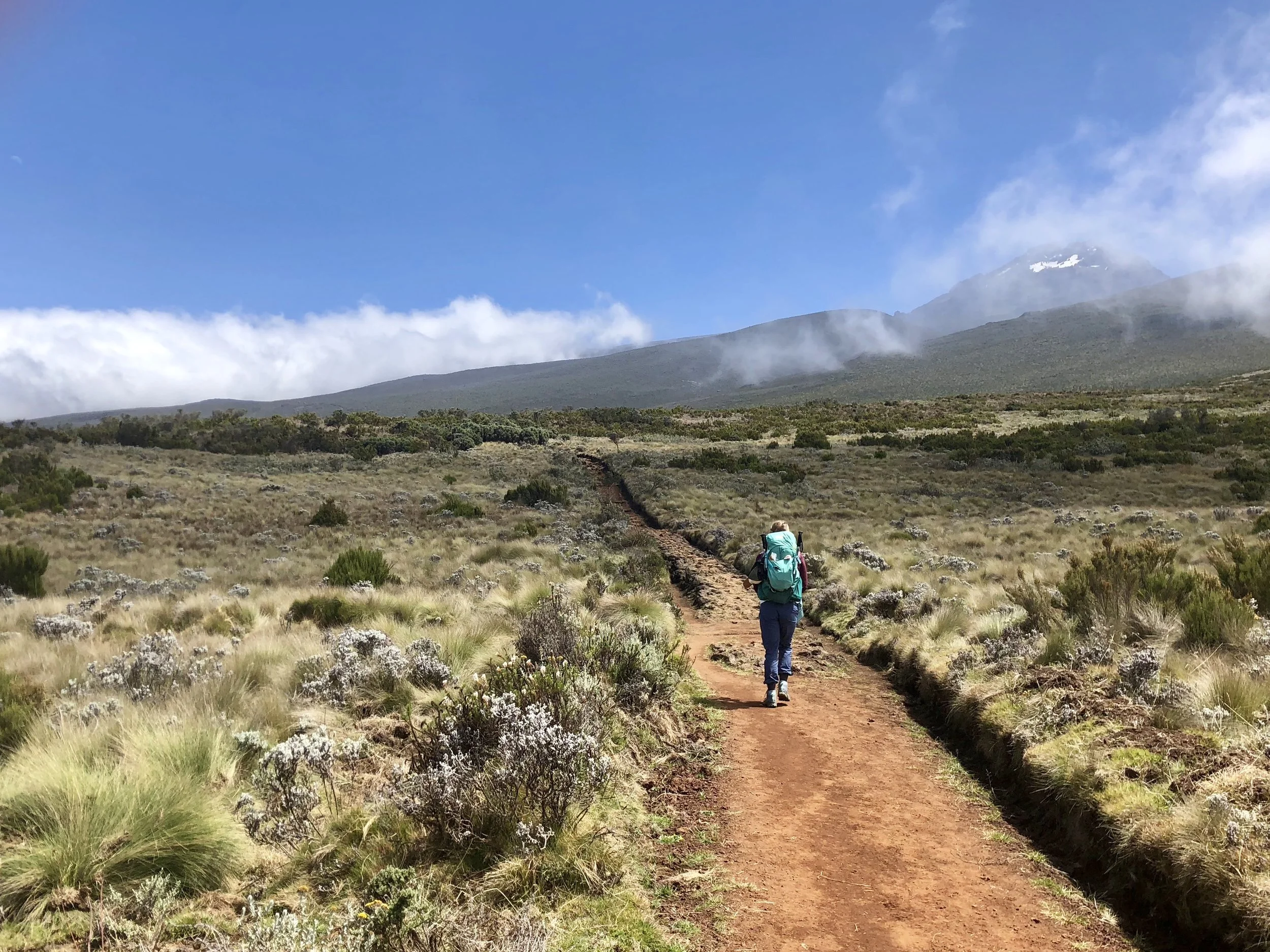WHAT TRAVELERS ARE SAYING
“My guides, Issa and Rama, were absolutely fantastic, and I could not have succeeded without them. I am so grateful for their expert guidance on the trip. And our Safari guide was outstanding, very funny and absolutely phenomenal at finding all the wild animals on the Serengeti.”
“I thought the experience as a whole was life-changing. The guides were so comfortable and knowledgeable that they made me feel safe. I also like the way that OneSeed contributes to the community and shares in the experience of being local to the destination. The staff on the expedition as well as in Denver was more than courteous and helpful in every way.”
“This was my second trip with OneSeed and I will continue to recommend them to friends. I love the model, the guides they hire, and the way they create such a good experience during and surrounding the hike. ”
Read More Reviews
WHAT TO BRING
You are responsible only for personal clothing and gear listed below. We'll take care of everything else. A gear check will be completed before you depart for the trail. This list does not include additional clothing/items you may want for travel or for your time off the trail. Any luggage not needed on the trail can be left at the lodge in Moshi during your trek. See current weather conditions for Kilimanjaro and Moshi.
Packing System: This expedition includes porters for bag transport. You are only responsible for carrying a daypack. We recommend packing your items in a durable duffel bag. The 22 lb weight limit for porter transport should include your sleeping bag.
Carried Bag Weight Limit: 22lbs/10kg
Rentals Available:
Sleeping Bag - $45 USD
Trekking Poles - $25 USD
Gaiters - $15 USD
Contact Us to rent gear (must be confirmed no later than 1 week prior to expedition start date)
Don't forget
We need you to have everything on the list below for our expedition to go smoothly, so there is no one item that is more important than another. Double-check your entire list and make sure to have/review these important items below. It's important to note that trekking at high altitudes can become a concern above 10,000 ft. Some travelers choose to use prescriptions such as Diamox to treat altitude sickness. We recommend talking to your doctor about the use of any prescription medicine.
Valid Passport
Your passport must be valid for 6 months after your arrival date in Tanzania.
Medical insurance card
Should anything happen, we can get you the care you need.
Required Vaccinations
It is important to receive required vaccinations before traveling abroad. Check the CDC's recommendations for Tanzania here.
The List (check it twice)
Trekking Gear
Change of clothes for town - to be kept in storage during expedition
Day pack (30 L)
Day pack cover
Duffel bag (porters carry)
Medium/Heavyweight down jacket
Fleece jacket or vest (1)
Synthetic hiking pants (1)
Rain jacket
Rain pants
Wind jacket
Synthetic long underwear (1-2)
Fleece leggings or pants for summit night
Synthetic T-shirt (2)
Wool or synthetic hat
Sun hat
Ski gloves & glove liners
Waterproof hiking boots (which can accommodate thick hiking socks and liners)
Nylon-wool blend socks (2-3)
Sandals/Crocs/Old Sneakers (for walking around the lodges/restrooms in the evening)
Water bottles (2) or bladder may be substituted for one water bottle
Headlamp
SPF 50+ sunscreen
100 percent UV protection sunglasses
Quick-dry towel
Personal toiletries and medicine
Sleeping bag w/ 0ºF rating
Hand sanitizer
Bug spray
Toilet paper in ziplock bag
Bandana or Buff (for dust and wind)
Extra ziplock baggies for toilet paper waste on the trail
Microspikes
Universal outlet adapter
Extra batteries or power pack to charge phone and/or electronics
Documents and Logistics
International flights booked and confirmed to Kilimanjaro International Airport
Passport valid for 6 months after arrival date
Photocopy of passport
USD for 15 or 30-day Tanzania Visa (available upon arrival for US citizens)
Medical insurance card
Cash for tipping guides, buying souvenirs, incidental costs, etc.
Yellow fever vaccination card (if applicable, not required for travelers coming from the USA)
Other (optional)
Reading material for the trail
Swimsuit for the lodge swimming pool
Hotel reservations for extended time in Tanzania (if applicable)
Guidebooks
Camera
Trekking poles
Gaiters
Hiking sock liners
Energy bars
Zip-lock bags for waterproofing passport and other valuables
Ear plugs
CLIMATE OVERVIEW
Due to its elevation, Kilimanjaro contains 5 sub-climates from base to peak --bushland, rain forest, moorland, alpine desert, and arctic. Both precipitation and temperature vary greatly between each zone. Expect to hike from flat, dry plains through rain forest and semi-alpine environments before reaching the rocky, snow capped summit.
Because Kilimanjaro is located near the equator, the temperature remains fairly constant throughout the year. Highs at the base of the mountains are in the upper 70s and lows in lower 60s. As you increase in altitude on the mountain temperatures drop significantly and the evenings can drop well below freezing and into single digits higher up on the mountain.
The rainy season peaks in April, and late March and early May can be quite wet as well. Bringing warm clothes and good rain gear will keep you prepared for any weather you may encounter.
ELEVATION PROFILE
Frequently Asked Questions
Does it matter what time I arrive or depart?
If you arrive/depart at any time on the scheduled start/end dates of your trip, OneSeed will arrange for airport transfers. Pickup will be arranged to efficiently transfer clients with flight times in close proximity (generally within one hour of each other). If you plan to arrive before the scheduled start date or stay past the end date of your trip, you will need to coordinate your own airport transfer or purchase a trip extension through OneSeed.
Do I need a visa? And what about passport requirements?
- Visas are required for US citizens. You can purchase your visa at the airport upon arrival to Tanzania ($100 USD) OR obtain your Visa prior to traveling to Tanzania. Please keep your passport and visa with you at all times during your expedition.
- Your passport must be valid for six months after your country departure date. It should also have at least one blank page for any necessary stamps.
- Visit the State Department website for Tanzania travel information for the most up-to-date Tanzania travel requirements.
What happens if my trip is altered due to unforseen circumstances?
Per the Assumption of Risk and Liability Waiver Agreement, if your expedition must be altered at any point, you are responsible for any additional costs.Canceled flights and transportation strikes happen. We do our best to ensure that your experience is unaltered by handling the situation efficiently and smoothly. For complete terms and conditions, see here. We recommend reviewing optional trip cancellation and interruption insurance to cover expenses in these instances. Some instances that have come up are:
- A twisted ankle one week before a trip
- Power outages in the Atlanta airport leaving travelers stranded
- Burst appendix!
- Earthquakes or floods cutting a trip short
DO I NEED ANY IMMUNIZATIONS OR MEDICINE?
- Talk to your physician and follow recommended CDC guidelines for Tanzania.
- Some travelers choose to use prescriptions such as Diamox to treat altitude sickness. We recommend talking to your doctor about the use of any prescription medicine.
- Yellow Fever Vaccination Cards are required for some travelers depending on their travel itinerary. The government of Tanzania requires proof of yellow fever vaccination upon arrival if you are traveling from a country with risk of yellow fever (this does not include the US). If you're traveling from any of the countries listed in this link, a yellow fever vaccine is required.
- Question on vaccines? Call your local Travel Medicine Clinic or Yellow Fever Vaccination Clinic
WILL WE NEED TO FILTER WATER?
Safe drinking water will be provided to you along the trail. When in Moshi or Arusha, be sure to only drink bottled water and do not use tap water to brush your teeth.
WHAT FOOD SHOULD I EXPECT TO EAT ON THE TRAIL?
- REMEMBER: Avoid street food when you first arrive in Tanzania! You do not want to begin your trek with unnecessary stomach issues.
- Food on the trail is rich in carbohydrates and protein since you'll be burning calories like a champ. Breakfast may include crepes/pancakes, toast, eggs, sausage/bacon, fruit, tea, hot cocoa, and coffee. Lunch may include fried chicken, puff pastry with either spinach or meat/carrots/peas, candy/biscuit, a banana, and hard-boiled eggs. Dinner may include soup, pasta or rice, chicken, beef or fish, avocado/green pepper salad, and fruit.
- OneSeed is able to accommodate most allergies and dietary preferences. If you didn't include this information on your registration form, please email info@oneseedexpeditions.com. We recommend any vegan travelers bring extra protein bars.
WHAT ARE THE ACCOMMODATIONS LIKE ON THE TRAIL?
You will be sleeping in tents every night on the trail. Sleeping pads will be provided but please be sure to bring a warm sleeping bag (0ºF recommended).
How many people will be on my expedition?
- Private departures will only be the members of your group.
- For group departures, we generally cap the number of travelers at around 10, though some may be slightly larger depending on the expedition. We guarantee all group departure dates whether there are 1 or 10 travelers signed up. We recommend asking our team how many people are in your group when you sign up for a departure date. Keep in mind, travelers may join or cancel at the last minute! If you are the only one in your group, we are happy to work with you on changing your travel dates if no deposits have been made.
CANCELLATION AND REFUND POLICY
- Please refer to our Terms & Conditions here: www.oneseedexpeditions.com/terms-of-service
DO I NEED TO TIP MY GUIDE?
Tipping in Tanzania can be very confusing, so we've provided the blogpost below to help guide you as you prepare for your trip and what to tip! www.oneseedexpeditions.com/blog/tipping-in-tanzania
WHAT IS THE ELEVATION? IS ALTITUDE A CONCERN?
The highest elevation you will reach on your trek is 19,341ft. Trekking at high altitudes can become a concern above 10,000 ft. Some travelers choose to use prescriptions such as Diamox to treat altitude sickness. We recommend talking to your doctor about the use of any prescription medicine. We always advise hiking at your own pace, drinking plenty of water, and the importance of self-care on the trail.
DOES SOMEONE CARRY MY PACK?
Due to the high altitude and length of daily travel, you will carry a daypack and a porter will carry your duffle bag up to 22 lbs. The weight limit for porter transport should include your sleeping bag. Your daypack should contain any clothes needed for that day and any personal belongings like your camera or passport.
WHAT IS THE SUPPORT TEAM LIKE?
- This chart outlines the number of support staff on your expedition based on group size. One common misconception is how many staff members it takes to help hikers reach the summit of Kilimanjaro. Each group requires a skilled team of guides, porters, and cooks. Nothing can be stored on the mountain, so everything from food and utensils to clothing and sleeping bags are carried up and down by porters.
- OneSeed Expeditions is a partner of the Kilimanjaro Ports Assistance Project (KPAP). KPAP works with operators like OneSeed to ensure the protection of porters and guides on Kilimanjaro based on pay, accommodations, health, and safety. Their monitoring and partner accreditation program has truly moved the needle on porter welfare on Kilimanjaro and OneSeed has supported their work since our launch in the region.
CAN I LEAVE SOME OF MY LUGGAGE IN THE HOTEL DURING THE TREK?
You will be staying at the same hotel before and after your trek in Moshi. Leaving an extra bag at either hotel during your trek is free of charge.
HOW SHOULD I TRAIN FOR MY TREK?
Daily mileage can range from 5-13 miles and 5-16 trekking hours per day. This expedition requires excellent physical fitness. Treks include longer days, greater elevation gain, and more challenging terrain at higher altitude. Participants should expect high levels of physical exertion at times. We always recommend that travelers break in their hiking boots before the expedition. Taking training hikes that mimic the mileage and amount of time you will be trekking in Tanzania is highly recommended.
WHAT WILL THE WEATHER BE LIKE?
Weather is always unpredictable which is why we recommend a comprehensive packing list. A sunny warm day can turn on a dime and end in rain. It never hurts to prep for both! Visit the terrain section above to see average temperatures and weather forecasts for Kilimanjaro.
ANY OTHER TIPS?
We always ask that you stay safe on the trail by drinking plenty of water, eating well, and communicating openly with your guide about any issues that arise. Be sure to take care of your belongings, be respectful of your travel companions, practice your Swahili with people you meet along the way, and respect the natural landscape that you're exploring.
RESPONSIBLE TRAVEL ON KILIMANJARO
The mistreatment of porters can be a troubling challenge in the climbing industry. We are an approved Partner company with the Kilimanjaro Porters Assistance Project – KPAP – and the International Mountain Explorers Connection – IMEC – Partner for Responsible Travel Program. We voluntarily participate with KPAP’s monitoring activities and allow KPAP to evaluate the treatment of our porters on all of our climbs. By climbing with us you can be assured that your porters are well taken care of.
KPAP also helps to improve the working conditions of porters by:
Lending donated clothing at no charge to the mountain crew for use while climbing
Educating the public on porter working conditions and climbing responsibly
Providing industry guidelines for proper porter treatment
Offering educational classes to porters



